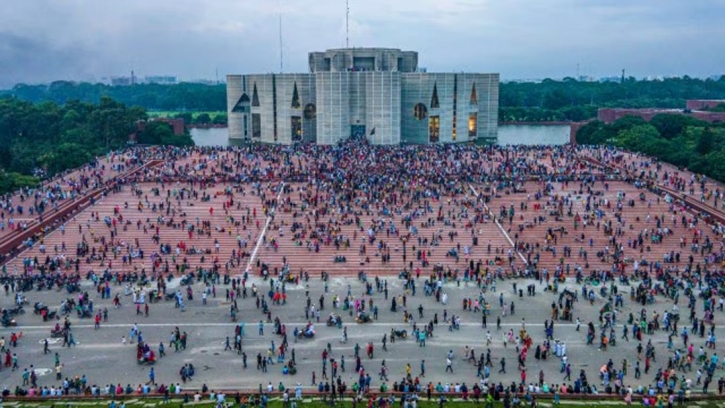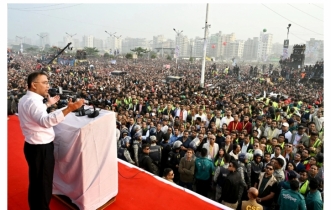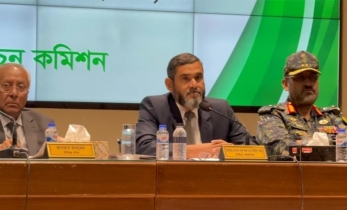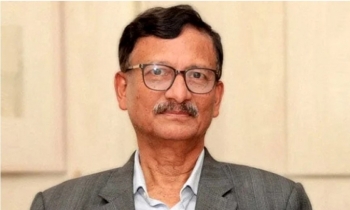
A recent photo taken with a drone shows people gather around at the Bangladesh Parliament House in Dhaka, Bangladesh
The resignation of former Prime Minister Sheikh Hasina has plunged Bangladesh into disorder, with rampant violence, arson, looting, and attacks on minority communities following the student-led Movement. The lack of a functional government has intensified the situation, raising serious concerns about citizen safety and the protection of state assets.
Chief of Army Staff General Waqar-uz-Zaman addressed the nation on Monday, appealing for public cooperation to maintain law and order. He announced the formation of an interim government and called for patience and support from the populace. President Md. Sahabuddin also highlighted the urgent need for an interim government and the dissolution of the 12th National Parliament, in line with the students' demands.
Despite these announcements, the police force remains largely inactive. The Police Subordinate Staff Association declared an indefinite nationwide strike on August 6, citing relentless attacks on police stations and their inability to perform their duties effectively. This strike follows the resignation of senior police officials, leaving the country vulnerable to criminal activities.
In this power vacuum, there is no effective force to counter the widespread violence and destruction. Reports of targeted attacks on homes, businesses, and places of worship of minority communities have alarmed citizens. The vandalism and arson of significant state buildings, including the Prime Minister's Office, Ganobhaban, and the police headquarters, further underscore the lawlessness.
Public figures and organizations have voiced their concerns and called for immediate action. A parent in Dhaka's Gulshan area told Voice7 News about the urgent need for safety and cooperation with the army, suggesting the mobilization of trained personnel from Ansar and BNCC to work with civilians in maintaining order. A woman entrepreneur from Dhaka emphasized to Voice7 News the necessity of a secure environment for all citizens.
The Metropolitan Chamber of Commerce and Industry, Dhaka (MCCI), has also issued a statement highlighting the negative impact of the current situation on trade and investment. The MCCI warned that prolonged instability could severely disrupt the country's economy and impede job creation. They urged law enforcement agencies to resume their duties to restore normalcy.
Minority communities, often the most vulnerable in political conflicts, have faced severe attacks. Immediate measures are required to protect their homes, businesses, and places of worship. The armed forces have provided contact numbers for reporting attacks, but proactive guarding is essential to prevent such incidents.
The President, as the chief guardian of the state, and the army, under the leadership of General Waqar-uz-Zaman, must take decisive action to protect citizens. While students have taken on roles such as traffic control and cleaning the National Parliament building, institutional measures are necessary to safeguard lives and property.
The current crisis demands a coordinated effort from all sectors of society. The establishment of an interim government and the restoration of law and order are critical to ensuring the stability and security of Bangladesh. Ansar and BNCC need to work with students and local people to ensure the security and safety of citizens and the stability of the country.





































